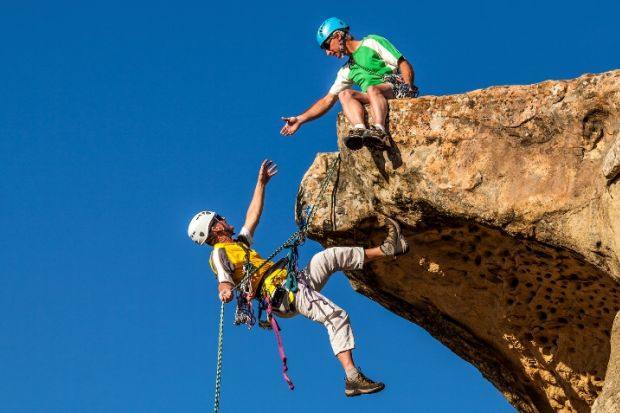Public perception of scientists as trustworthy experts is likely to be negatively impacted by the coronavirus crisis, according to new research.
A paper, Revenge of the Experts: Will Covid-19 Renew or Diminish Public Trust in Science?, examined how exposure to previous epidemics affected individuals’ levels of confidence in science and scientists, focusing on those who experienced an epidemic outbreak in their country of residence while they were in their “impressionable years” between age 18 and 25.
It found that such exposure had no impact on people’s views of the value of science as an endeavour. However, it significantly reduced their confidence in scientists and the benefits of scientists’ work, the research revealed. In particular, they were less confident about the trustworthiness and public-spiritedness of scientists.
The declining level of trust in scientists was driven by the sample of individuals with little or no science education, according to the authors, Cevat Giray Aksoy, lecturer in economics at King’s College London; Barry Eichengreen, professor of economic and political science at the University of California, Berkeley; and Orkun Saka, lecturer in finance at the University of Sussex.
The paper adds that the epidemic exposure effect is specific to scientists; it does not have a negative impact on the perception of other public health professionals, such as doctors, nurses, NGO workers or traditional healers. Furthermore, there is no such association for individuals who experienced an epidemic outbreak in their country before or after their formative years.
Several experts have suggested that Covid-19 may renew public trust in science and scientists.
The study combined data from the Wellcome Trust’s 2018 Global Monitor survey, which includes responses to questions about confidence in science and scientists from more than 70,000 individuals in 160 countries, with data on all global epidemics since 1970.
The authors suggest that scientists working on public health should “think harder about how to communicate trustworthiness and honesty and, specifically, about how the generation currently in their impressionable years perceives such attributes”.
Dr Aksoy said the findings reveal that there is “a divide between what scientists do and…the perception in the public”.
“Previous research shows that the communicator’s credibility and perceived expertise are key in scientific communication and gaining public trust. At a time of an epidemic, scientists are called to address the public’s concerns and advise those in charge. However, if scientists fail to explain their findings clearly and concisely and fail to inspire trust in public, people will probably see them as elitists or inaccessible,” he said.
Dr Aksoy added that governments’ attitudes towards scientists were also “really important”.
“If politicians use science as a facade of authority and as a scapegoat, the public will eventually blame scientists for not being able to deal with the problem in an effective manner,” he said.
A separate survey, published last month, found that the proportion of Germans who said they trusted science and research “wholeheartedly” shot up to 36 per cent in mid-April, four times the share recorded in the same survey in 2019.




